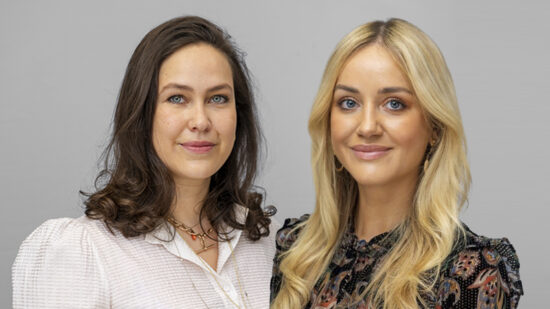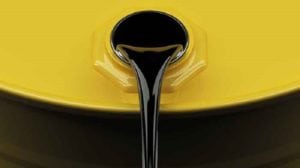Prime minister David Cameron issued a statement yesterday saying: “The steps taken by president Putin today to attempt to annex Crimea to Russia are in flagrant breach of international law and send a chilling message across the continent of Europe.
“Britain depends on the stability and security of the international order. That relies on a rules based system where those who ignore it face consequences. And that’s why the EU and the United States have already imposed sanctions.
“It is completely unacceptable for Russia to use force to change borders, on the basis of a sham referendum held at the barrel of a Russian gun. President Putin should be in no doubt that Russia will face more serious consequences and I will push European leaders to agree further EU measures when we meet on Thursday.”
Further isolation
A failure to retreat would see Putin's Russia face tighter sanctions and increased isolation from the global stage.
Meanwhile, opening a debate yesterday on the Ukraine crisis in the House of Commons, Foreign Secretary William Hague called the crisis “the most serious test of European security in the 21st century so far.”
He said the UK's interests were twofold: “First, we want to see a stable, prosperous and unified Ukraine able to determine its own future free from external pressure or interference. Second, we have a vital interest in the upholding of international law and the UN charter, the honouring of treaties, and the maintenance of a rules-based international system. Russia’s actions in Crimea run roughshod across all of these fundamental principles and threaten the future of Ukraine.”
Hague praised the restraint shown by the Ukrainian government, its forces and its people in the face of “immense provocation” but warned further provocation could become a pretext for further military escalation. He added they were “working urgently to agree the mandate for an expanded OSCE monitoring mission to all parts of the country in the coming days.”
Following the vote to bring Crimea into Russian hands, a decision cast by 96.8% of voters, Putin has announced new laws to bring Crimea into the Russian Federation.
Hague said following the “illegal” referendum, Putin's decision for its isolation was “regrettable”, accusing him of denying his citizens and those of Crimea partnership with the international community, and the ability for Russia to help shape the 21st century in a positive manner.
He warned that a failure to stand up to such a profound breach of international agreements and the use of force to change borders in the 21st century, the credibility of the international order was at a stake, with more crises likely.
While Hague stressed the “door to diplomacy” remained open but said was now looking necessary to increase the pressure on Russia and its response, including a halt to visa liberalisation talks, travel bans and asset freezes against named individuals, not just in Crimea but in Russia – decisions taken in coordination with the US, Canada, Japan and Australia.
Economic and trade measures looked set to follow with forthcoming Sochi G8 Summit plans put on hold. All export licences relating to defence will also be suspended where there is risk any products will be used against Ukraine.
Not another Cold War
The markets, predictably, have shown volatility but while the tensions pose a risk, Baring Asset Management investment director of global multi-asset group Andrew Cole said they did not herald a return of a new Cold War era.
In times of flux, he said the markets tended to be driven more by politics than fundamentals and said whether Crimea remained part of the Ukraine or not, it was clear there was a need for a multilateral economic support programme.
“From the perspective of Russia, the rouble has fallen sharply in recent weeks, and there is a risk that an intensification of the confrontation and the imposition of further sanctions could further undermine the Russian economy.
“It could also have negative consequences for economies reliant on foreign trade and investment with Russia. In this respect, Western Europe could be vulnerable from an energy perspective, as Russia is the world’s largest energy exporter and a key supplier to the EU for meeting its energy needs.”
All that said, he believed from an investment perspective, a slowdown in China posed a greater threat in the long term.
BlackRock however, was more concerned over the impact on Europe.
Russ Koesterich, the group's global chief investment strategist said as stock prices were trading at an all-time high, the risks were not being priced in effectively, which could lead to stock vulnerability in the near term.
Watch on consumer stocks and Europe
Koesterich said he remained cautious toward consumer-related companies – both discretionary and staples, which were negative on a YTD basis but still looked expensive.
He said at valuations of 21x trail earnings for consumer discretionary, if consumer spending did not rebound this was an area of the market likely to underperform.
He also warned of the specific fallout for Europe, which imports roughly 30% of its natural gas from Russia, which made it incredibly vulnerable should Russia interrupt its supply.
“At this point, we are not expecting this to occur, but should significant sanctions be enacted, such actions would certainty hurt Europe's already-fragile economic recovery and would act as a drag on European stocks.”
The president of the European Council, Herman Van Rompuy and president of the European Commission, José Manuel Barroso issued a statement saying: "The sovereignty, territorial integrity and independence of Ukraine must be respected.
"The EU does neither recognise the illegal and illegitimate referendum in Crimea nor its outcome. The EU does not and will not recognise the annexation of Crimea and Sevastopol to the Russian Federation.
"In line with the declaration of the heads of state and government of the EU of 6 March and our statement on Crimea of 16 March, the European Council will discuss the situation in Ukraine at its meeting this week and agree on a united European response."







